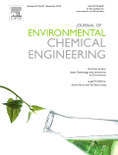
Journal of Environmental Chemical Engineering
Scope & Guideline
Exploring the intersection of chemistry and environmental stewardship.
Introduction
Aims and Scopes
- Environmental Remediation Technologies:
The journal emphasizes the development and application of chemical engineering technologies for the remediation of contaminated water, soil, and air, including advanced oxidation processes, adsorption, and bioremediation. - Sustainable Resource Recovery:
Research on sustainable methods for recovering valuable resources from waste streams, such as metals from electronic waste and nutrients from wastewater, is a key focus area. - Photocatalytic and Electrocatalytic Processes:
The journal publishes studies related to photocatalytic and electrocatalytic processes for the degradation of organic pollutants and conversion of CO2 into useful products, highlighting innovations in catalyst design and performance. - Nanomaterials and Hybrid Systems:
There is a significant focus on the synthesis and application of nanomaterials and hybrid systems for environmental applications, including wastewater treatment and air pollution control. - Mechanistic Studies and Modeling:
The journal encourages research that integrates mechanistic studies and modeling approaches to better understand the interactions in chemical processes and improve treatment efficiencies.
Trending and Emerging
- Advanced Oxidation Processes (AOPs):
There is a growing interest in AOPs for the degradation of persistent organic pollutants, with a focus on novel catalysts and methods that enhance degradation efficiency. - Microbial Fuel Cells and Bioelectrochemical Systems:
Research in microbial fuel cells and bioelectrochemical systems is trending, particularly concerning their applications in wastewater treatment and bioenergy recovery. - Integration of Machine Learning and Data Science:
The application of machine learning and data science for predicting treatment outcomes and optimizing processes is on the rise, showcasing a trend toward data-driven approaches in environmental engineering. - Hybrid Membrane Technologies:
The development of hybrid membrane systems that combine different separation technologies to enhance pollutant removal efficiency is becoming increasingly prominent. - Sustainable Materials and Green Chemistry:
There is a notable trend towards using sustainable materials and green chemistry principles in the design of catalysts and adsorbents for environmental applications.
Declining or Waning
- Traditional Wastewater Treatment Techniques:
Research on conventional wastewater treatment methods, such as basic sedimentation and biological treatment without advanced technologies, has decreased as more innovative and efficient solutions gain prominence. - Single-Focused Chemical Processes:
Studies focusing solely on individual chemical processes without integration into broader systems or multi-faceted approaches are becoming less common, as the field increasingly values holistic solutions. - Basic Chemical Analysis of Pollutants:
There is a noted decline in publications centered around basic chemical analysis of pollutants without accompanying remediation strategies, as researchers aim for more impactful studies that combine analysis with solutions. - Static Models for Environmental Impact:
The reliance on static models to assess environmental impacts is waning, with a shift towards dynamic models that consider real-time data and interactions in environmental systems.
Similar Journals

Journal of the Pakistan Institute of Chemical Engineers
Advancing Chemical Engineering Knowledge for a Sustainable Future.The Journal of the Pakistan Institute of Chemical Engineers serves as a pivotal platform for advancing the field of chemical engineering within Pakistan and beyond. Published by the Pakistan Institute of Chemical Engineers, this journal aims to disseminate high-quality research, reviews, and case studies that cover a wide scope of topics relevant to chemical engineering, including process design, environmental technology, and materials science. Although it operates under a non-open access model, the journal is committed to maintaining rigorous peer-review standards to ensure the publication of impactful articles that contribute to the advancement of knowledge and best practices in the discipline. As a hub for researchers, professionals, and students alike, this journal not only fosters academic collaboration but also plays an integral role in shaping the future of chemical engineering in the region. With an ISSN of 1813-4092, it is dedicated to enhancing the visibility and accessibility of chemical engineering research, promoting innovation and education within the field.
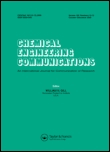
CHEMICAL ENGINEERING COMMUNICATIONS
Elevating Knowledge in Chemical Sciences Since 1973.Chemical Engineering Communications, published by Taylor & Francis Inc, is a distinguished journal within the realms of Chemical Engineering and Chemistry. With an ISSN of 0098-6445, this journal plays a pivotal role in disseminating innovative research, critical reviews, and insightful discussions that encompass a broad spectrum of topics in these fields. The journal boasts a commendable Q2 ranking in the 2023 category of chemical engineering and general chemistry, reflecting its significant contribution to the scientific community. Operating under a rigorous peer-review process, the journal attracts high-quality submissions from global researchers. Although currently not an Open Access journal, it provides extensive archive access for users interested in exploring past advancements from its inception in 1973 through to 2024. With a commitment to advancing knowledge and fostering collaboration among academia and industry, Chemical Engineering Communications remains an essential resource for professionals and students aiming to stay abreast of the latest developments in chemical sciences.

ENVIRONMENTAL SCIENCE & TECHNOLOGY
Advancing sustainable solutions through innovative research.ENVIRONMENTAL SCIENCE & TECHNOLOGY, published by the American Chemical Society, is a premier journal dedicated to the rapid dissemination of innovative and impactful research in the fields of environmental science and technology. With an ISSN of 0013-936X and an E-ISSN of 1520-5851, this journal boasts a remarkable Q1 ranking across multiple categories including Chemistry (Miscellaneous), Environmental Chemistry, and Medicine (Miscellaneous) for 2023, reflecting its crucial role in advancing interdisciplinary approaches to pressing environmental issues. Notably, it holds prestigious Scopus rankings, being ranked #26 in General Chemistry and #10 in Environmental Chemistry, placing it in the top portions of its respective categories with unmatched visibility at the 93rd percentile. Spanning a publication history from 1967 to 2024, the journal serves as a vital resource for researchers, professionals, and students aiming to contribute to sustainable solutions and scientific advancements. By prioritizing rigor and relevance, ENVIRONMENTAL SCIENCE & TECHNOLOGY fosters academic dialogue and innovation within these crucial fields, making it an essential read for anyone invested in environmental progress.
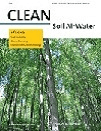
CLEAN-Soil Air Water
Connecting Ideas for a Cleaner, Greener TomorrowCLEAN-Soil Air Water, an esteemed journal published by Wiley, serves as a vital platform for disseminating research in the fields of environmental chemistry, pollution, and water science and technology. Operating under an Open Access model, it embraces the principles of knowledge sharing, making significant research findings readily accessible to a global audience. With an ISSN of 1863-0650 and an E-ISSN of 1863-0669, the journal has demonstrated its importance in the academic community, reflected in its Scopus rankings within the top quartiles of its categories. Established in 2007 and continuing through to 2024, CLEAN-Soil Air Water offers researchers, professionals, and students an opportunity to explore innovative studies that address pressing environmental challenges, facilitating an exchange of novel ideas and techniques essential for sustainable development. With a publication footprint in Germany and a growing international reputation, this journal is an invaluable resource for those dedicated to advancing the science and practices of environmental stewardship.
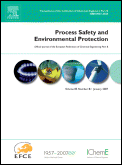
PROCESS SAFETY AND ENVIRONMENTAL PROTECTION
Fostering interdisciplinary solutions for a sustainable future.PROCESS SAFETY AND ENVIRONMENTAL PROTECTION, published by Elsevier, is a premier academic journal dedicated to advancing the fields of chemical engineering, environmental science, and safety management. With an impressive impact factor, this esteemed journal undergoes a meticulous peer-review process and serves as a vital platform for researchers, professionals, and students seeking to disseminate cutting-edge research and innovative practices. Submissions are welcome in a wide scope of topics related to safety, risk, reliability, and environmental engineering, demonstrating its influence as a Q1 journal across multiple categories, including Environmental Chemistry and Safety, Risk, Reliability and Quality. By providing a rigorous analysis of current challenges and solutions in the domain since its inception in 1990, it continues to foster interdisciplinary collaboration and practical applications in the United Kingdom and beyond. With the journal not currently offering Open Access options, subscribers gain exclusive access to pivotal insights that shape industry standards and drive advancements in sustainable practices.

Revista Mexicana de Ingenieria Quimica
Connecting Scholars in the Chemical Engineering CommunityRevista Mexicana de Ingenieria Quimica, published by UNIV AUTONOMA METROPOLITANA-IZTAPALAPA, serves as a vital academic platform for the dissemination of innovative research in the field of chemical engineering. Established in 2008, this journal has become a respected source of knowledge, reflecting the ongoing advancements and challenges in the discipline. As a Q3 ranked journal in the field of Chemical Engineering, it holds a significant position with a meaningful impact amongst its peers, showcasing diverse aspects of chemical engineering and applications. With contributions from various scholars, it actively engages the global research community and promotes collaboration among professionals and students alike. While currently not designated as an open-access publication, the journal is accessible through institutional subscriptions, ensuring that valuable insights and findings reach a broad audience. Researchers looking to stay at the forefront of chemical engineering would benefit immensely from the cutting-edge studies and reviews published in Revista Mexicana de Ingenieria Quimica.

Izvestiya Vysshikh Uchebnykh Zavedenii Khimiya i Khimicheskaya Tekhnologiya
Elevating Standards in Chemical Engineering ScholarshipIzvestiya Vysshikh Uchebnykh Zavedenii Khimiya i Khimicheskaya Tekhnologiya is a prominent academic journal dedicated to the fields of chemistry and chemical technology, published by the esteemed IVANOVSKOGO KHIMIKO-TEKHNOLOGI TSHESKOGO INST in the Russian Federation. With an ISSN of 0579-2991 and E-ISSN of 2500-3070, this journal has been a crucial platform since its inception in 1980, showcasing significant advancements and research findings, particularly in its converged periods from 1980, 1982, and 2017 to 2024. The journal is ranked Q3 in Chemical Engineering and Chemistry, reflecting its dedication to quality scholarship. Although open access options are currently unavailable, the journal plays a vital role in disseminating knowledge and fostering collaboration among researchers, professionals, and students in these critical scientific domains. Situated in Ivanovo, Russia, it continues to be a focal point for impactful research, making it an essential resource for those aiming to stay at the forefront of innovation in chemistry and chemical engineering.

ACS ES&T Engineering
Exploring Critical Insights in Chemical Engineering and Environmental Health.ACS ES&T Engineering, published by the American Chemical Society, stands as a leading journal in the realm of Chemical Engineering, Environmental Chemistry, and related fields, with a notable Impact Factor indicative of its scholarly influence. Emerging from 2021 with a vision to address contemporary challenges in engineering and environmental health, this Journal not only covers critical studies in Chemical Engineering but also excels in areas such as Process Chemistry and Technology, aligning with its Q1 status across several categories in 2023. With exceptional rankings in Scopus, including a percentile rank in the 90th for Chemical Health and Safety, it offers a significant platform for researchers, educators, and practitioners to disseminate innovative research and practices. Although the journal maintains a subscription model, its commitment to rigorous peer review and high-quality content ensures that readers gain access to pivotal findings essential for advancing knowledge and practice in a rapidly evolving scientific landscape. For those dedicated to tackling global engineering challenges, ACS ES&T Engineering is an invaluable resource.
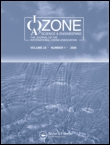
OZONE-SCIENCE & ENGINEERING
Transforming Environmental Challenges with Ozone ExpertiseOZONE-SCIENCE & ENGINEERING, published by TAYLOR & FRANCIS INC, is a pivotal journal dedicated to advancing research in the field of environmental science, focusing on the properties, measurement, and application of ozone in various engineering contexts. With an ISSN of 0191-9512 and an E-ISSN of 1547-6545, this journal has been an authoritative source since its inception in 1979 and continues to publish valuable insights until 2024. Featuring a respectable impact factor and well-regarded Scopus rankings—ranking 64 out of 197 in Environmental Engineering and 64 out of 147 in Environmental Chemistry—OZONE-SCIENCE & ENGINEERING holds significant relevance in the academic community. The journal’s classification into Q3 for Environmental Chemistry and Q2 for Environmental Engineering underlines its contributors' commitment to facilitating innovative research and dialogue among scientists, practitioners, and students alike. Although not an open-access journal, readers can access a wealth of rigorously peer-reviewed articles that aim to address both contemporary challenges and advancements in ozone science. By disseminating high-quality research, this journal plays a crucial role in shaping environmental policies and practices worldwide.

ENVIRONMENTAL ENGINEERING SCIENCE
Advancing sustainable solutions for a cleaner planet.ENVIRONMENTAL ENGINEERING SCIENCE is a leading journal published by MARY ANN LIEBERT, INC that provides a platform for pioneering research in the fields of environmental chemistry, pollution control, and waste management. With an ISSN of 1092-8758 and an E-ISSN of 1557-9018, this peer-reviewed journal aims to disseminate high-quality scientific studies that address critical environmental challenges. As evidenced by its 2023 category quartile rankings, it holds a notable position at Q3 in Environmental Chemistry and Pollution and Q2 in Waste Management and Disposal, highlighting its relevance and impact in these domains. Spanning over two decades from 1997 to 2024, the journal is dedicated to fostering innovations and promoting rigorous scholarship that can contribute significantly to sustainable environmental practices globally. Authors and researchers are encouraged to engage with this essential resource, which offers Open Access options to enhance the visibility and reach of their work. For those interested in advancing their understanding and practice within the environmental sciences, ENVIRONMENTAL ENGINEERING SCIENCE is an indispensable journal to consider.